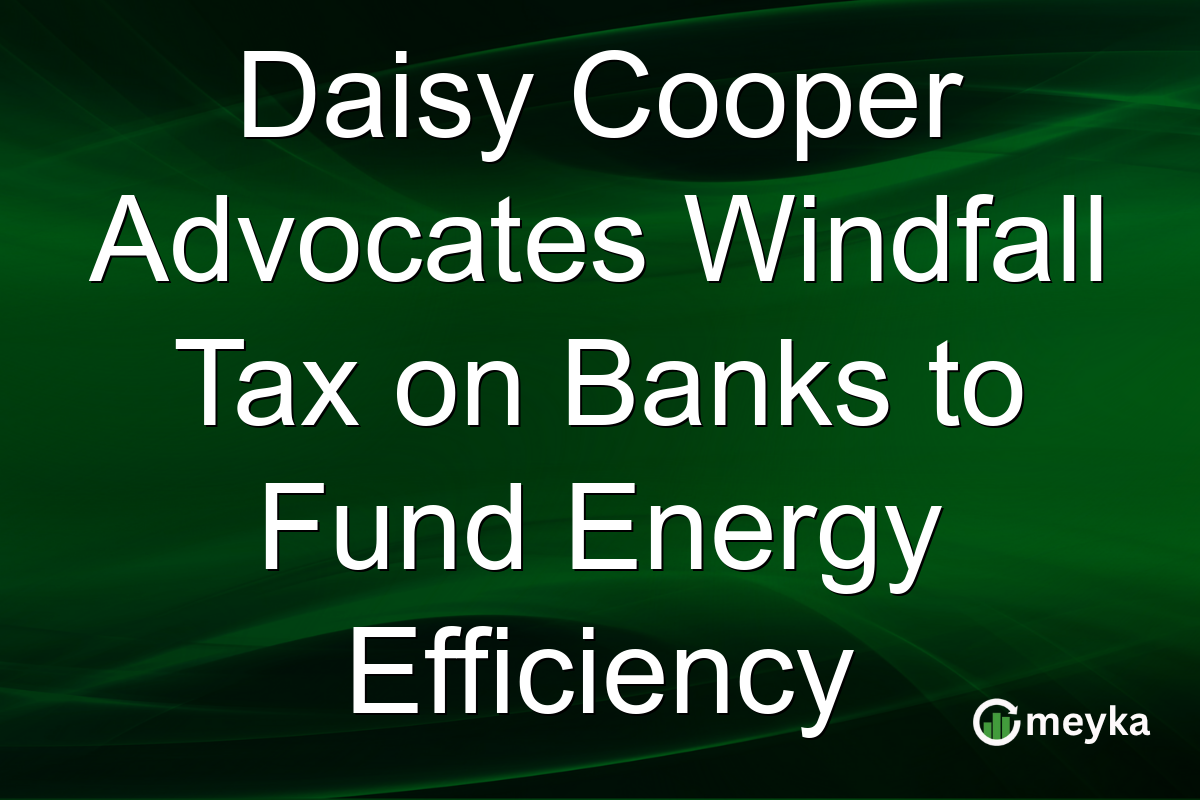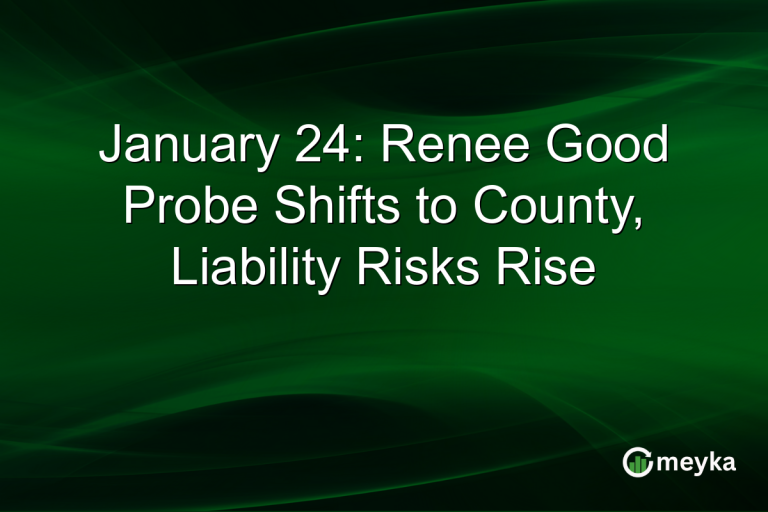Daisy Cooper Advocates Windfall Tax on Banks to Fund Energy Efficiency
In a bold move to tackle energy inefficiency and support sustainable practices, Daisy Cooper, Deputy Leader of the Liberal Democrats, has proposed a windfall tax on bank profits. This proposed tax aims to redirect unexpected financial gains from banks to finance energy efficiency loans for homeowners. The goal is to curb rising energy bills permanently while promoting sustainability. This initiative arrives amid growing concerns over climate change and energy costs, making it a timely and strategic proposal.
The Proposal for a Windfall Tax on Banks
Daisy Cooper’s proposition entails a temporary windfall tax targeting profits that banks didn’t anticipate. This isn’t the first time banks have faced scrutiny for their financial gains, but Cooper’s approach is unique: using these funds to underwrite energy efficiency loans. Such loans can help homeowners reduce their energy consumption, leading to lower bills and a smaller carbon footprint. This strategy could also mobilize additional public and private investments into enhancing the energy efficiency of homes across the UK. According to Standard, Cooper’s initiative is part of a broader agenda to foster a sustainable energy future.
The Mechanics of Energy Efficiency Loans
Energy efficiency loans can be a game-changer for homeowners struggling with high energy bills. By providing upfront financing for energy-efficient upgrades, such as improved insulation or solar panels, these loans facilitate reductions in energy consumption and costs. The reduced energy use will help lower carbon emissions directly, aligning with national and global sustainability goals. Cooper envisions that the funds raised from the bank profits tax would lower the interest rates on these loans, making them accessible to a broader segment of the population. This integration of financial strategy and environmental goals exemplifies a comprehensive approach to addressing climate change.
Implications for the Banking Sector
Implementing a windfall tax may spark significant reactions within the financial sector. Banks concerned about profit margins may resist initial implementations but can benefit from improved public relations by supporting environmental causes. A well-designed framework can ensure banks contribute without facing overly harsh financial penalties, encouraging their participation in broader sustainability efforts. While some banks might initially experience decreased profits, the sustainable practices fostered can lead to long-term economic benefits for society.
Public and Political Reactions
Responses to Cooper’s proposal have varied, reflecting different political and social perspectives. Supporters argue that it’s an innovative way to bridge financial success with environmental responsibility. Critics may question the fairness of targeting banks specifically, suggesting it could deter financial growth. A featured discussion on LBC highlights how political leaders view this as a balancing act between fiscal responsibility and ecological necessity. Overall, the proposal’s success could depend on convincing data demonstrating the environmental and economic benefits of the resultant energy savings.
Final Thoughts
Daisy Cooper’s call for a windfall tax on banks to fund energy efficiency loans represents a significant intersection of finance and sustainability. By using bank profits to facilitate greener home solutions, this proposal aims to reduce carbon footprints and energy bills effectively. The potential challenges, particularly from the banking sector, cannot be overlooked, yet the long-term benefits for society and the environment could be substantial. For investors and stakeholders, this proposition highlights an evolving landscape where financial agility intersects with environmental stewardship. As the conversation progresses, platforms like Meyka could offer insights into the impacts of such policies on financial markets and sustainability trends. Ultimately, as society weighs the scales of profit against planet, Cooper’s proposal presents a pathway that could redefine fiscal and ecological responsibility.
FAQs
Daisy Cooper proposes a temporary windfall tax on banks’ unexpected profits to fund energy efficiency loans. This aims to support homeowners in reducing energy bills and carbon footprints.
These loans provide upfront financing for upgrades like better insulation or solar panels, reducing energy consumption and costs over time, thus promoting sustainable living.
Banks might initially resist, fearing profit impacts. However, contributing to environmental causes can enhance public image, aligning with sustainability goals.
Banks earned unexpected profits in recent challenges, placing them in a position to contribute to societal and environmental improvements effectively.
By reducing energy costs, it can lead to savings for households, contribute to national sustainability goals, and potentially stimulate green technology markets.
Disclaimer:
This is for information only, not financial advice. Always do your research.






